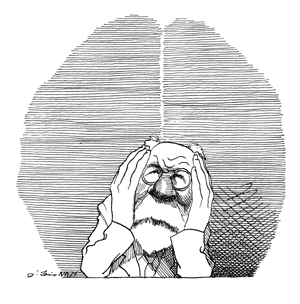In response to:
Freud: What’s Left? from the February 23, 2017 issue
To the Editors:
I suppose that with recent political events in the United States it has become possible to believe that a complete fraud and mountebank could achieve worldwide status by manipulating public opinion. However, this is not the case with Sigmund Freud. Anyone who studies twentieth-century history soon realizes that psychoanalysis is one of the few great success stories of the century. Not the therapy in its original “pure” form but through its influence on the therapeutic revolution, on film, painting (surrealism!) and literature, sex roles and the family, the welfare state, and even on political thought. The reason is that Freud summed up what he called the “moral impulsions” of his age—a time in which the older family forms were transformed and in which there was a startling shift in the nature of subjectivity.
Eli Zaretsky
Professor of History
New School for Social Research
New York City
Frederick Crews replies:
It is indisputable that Freud and psychoanalysis achieved enormous influence in the twentieth century. Eli Zaretsky, however, uses that fact to draw an illogical conclusion. According to him, Freud is absolved of charlatanry by having tapped deeply into the Zeitgeist; but that is precisely what the most adept charlatans do. Zaretsky’s own historical researches show that psychoanalysis, a militant movement armed with a technique of thought reform, continually shifted its doctrine in order to stay abreast of public opinion. That is a very different matter from being validated by the course of events.
It is easy to prove that Freud faked therapeutic results and otherwise adulterated his record. No less surely, though, he set out with nobler intentions. In my forthcoming book, Freud: The Making of an Illusion (to be published this fall), I trace the many steps that took him from modest conventional prospects to a cult of personal authority that overrode every scientific and ethical constraint.



